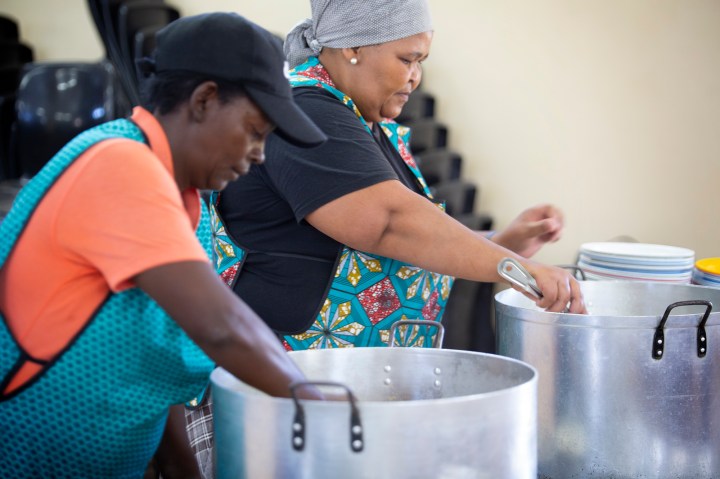GroundUp
Covid-19: Motshekga urged to restore school feeding schemes during lockdown

Social justice, education and children’s rights activist groups are calling on the Minister of Basic Education to act swiftly to restore school feeding schemes during the lockdown.
In a joint letter to Minister Angie Motshekga, Equal Education, the Equal Education Law Centre, SECTION27, the Centre for Child Law, and the Children’s Institute have made suggestions about how an estimated nine million vulnerable children could continue to access the National School Nutrition Programme (NSNP).
For many children, the free school meal was the only meal of the day.
The organisations say that to date, the minister’s response to this urgent issue has been “disappointing” and “untenable”.
The letter quotes the minister as saying “ …we [the DBE] are not going to do anything different outside of what we normally do; we are not going to have special programmes; we are not going to run feeding schemes. We have accessed our capacity and we will not be able to do it.”
The organisations say they understand that the Food and Nutrition Security Coordination committee is leading efforts to coordinate an inter-departmental response to a child hunger mitigation strategy with R1.4-billion funding from the disaster relief fund and the social relief fund.
“Interventions are reported to include food parcels, distributed through local and provincial centres through implementing agents. But these may not be adequately accessible to those in need, particularly the rural areas.”
They also voice concerns about the safety of children, overcrowding and long queues at these centres, arguing that the use of schools is a better option.
They recommend that:
- schools be deemed essential service facilities for purposes of serving as collection points;
- physical distancing measures be put in place including, for example, staggering collection dates and times and limiting numbers of collections per day;
- district-level coordination to enable learners who may not live in the same area as their closest schools to access food packages or meals;
- scholar transport buses be used to facilitate mobile collection and delivery; and
- where school-based feeding programmes are not possible, the use of voucher systems should be considered, provided that vouchers are redeemable at all local outlets (including spaza shops).
In the Western Cape, MEC Debbie Schäfer has come under fire from the minister for reopening school feeding schemes.
The South African Democratic Teachers Union (SADTU) accused the Western Cape government of undermining the President’s plan to “limit the spread of the disease”.
But in a letter to all principals, teachers and governing bodies last month, Western Cape education head of department Brian Schreuder said that feeding poor and hungry learners was an “essential service” and was therefore legal.
He said SADTU had suggested that the union’s members would deliver food parcels, but that task would be too huge and complex because it would involve dropping off food for 483,000 learners in the Western Cape every day.
“I know the only way to reach as many children as possible is to have them collect from school in an orderly fashion.”
The Peninsula School Feeding Association (PSFA) has fed about 100,000 learners in the Western Cape since the programme resumed on school properties last week. Before that, during the lockdown the association had partnered with community organisations and given them food parcels to distribute, making use, for example of the “working bus ladies” who take learners to and from school, director Petrina Pakoe said.
She said at first there had been resistance from principals “but almost every day last week, more schools have signed up and we now have about 300 in the metro areas”.
She said learners were encouraged to wear their uniforms so they could be clearly identified and that the schools kept registers.
Children had to bring a container and eat the food at home.
“Communities and teachers have been amazing in finding creative ways to ensure social distancing,” Pakoe said. DM


















 Become an Insider
Become an Insider